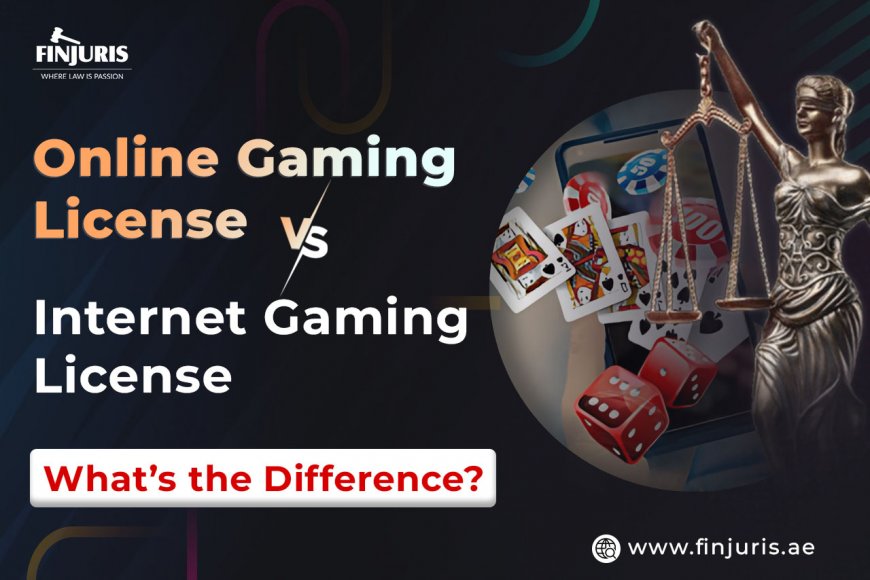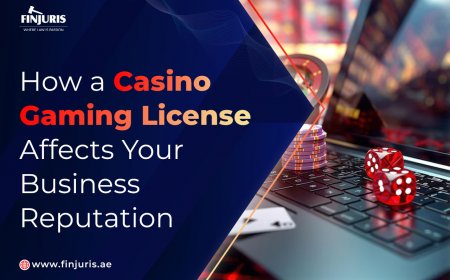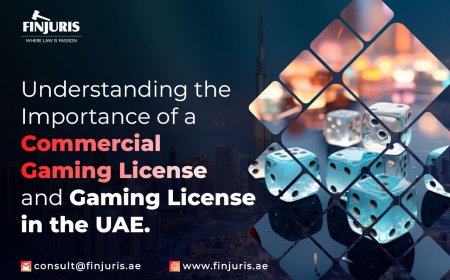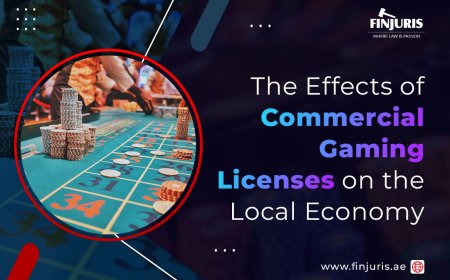Online Gaming License vs. Internet Gaming License: What’s the Difference?
Learn the key differences between online gaming and internet gaming licenses to choose the right one for your gaming business.

As the global gaming industry continues to explode in popularity and revenue, navigating the regulatory landscape has become both a necessity and a challenge for entrepreneurs and platform operators. Two terms often used interchangeably but with nuanced differences are the online gaming license and the internet gaming license. While both relate to legal authorization to operate games in a digital space, the specifics around their usage, scope, and compliance obligations can vary significantly depending on your business model and jurisdiction.
In this article, we’ll break down the subtle distinctions between an online gaming license and an internet gaming license, explain how different jurisdictions define them, and guide you in selecting the right one based on your platform’s features, target markets, and legal risks.
What Is an Online Gaming License?
An online gaming license is a legal permit that allows a business to operate gaming services over the internet. These can include:
- Skill-based games (e.g., fantasy sports, online chess)
- Chance-based games (e.g., online roulette, slot machines)
- Social gaming platforms with monetization
- Real-money betting and wagering platforms
The term "online gaming license" is often used in regions like India, Malta, the Isle of Man, and Curacao, where the focus is on regulating any gaming or betting activity that occurs on digital platforms. These licenses usually require compliance with:
- Anti-Money Laundering (AML) and Countering the Financing of Terrorism (CFT) regulations
- Fair gaming policies
- Responsible gambling frameworks
- Geo-restrictions and age verification
What Is an Internet Gaming License?
An internet gaming license generally refers to a broader regulatory classification used in some jurisdictions—notably North America and parts of Europe—to encompass all gaming activities conducted through the internet. These licenses may include:
- Remote casino operations
- Internet poker rooms
- Online sportsbooks
- Virtual slot or bingo platforms
While the differences from an online gaming license may seem subtle, the term "internet gaming license" is often more comprehensive and refers specifically to the regulatory categories used in government statutes, such as those found in the U.S. states of New Jersey, Pennsylvania, and Ontario, Canada.
In the U.S., for example, operators need a specific internet gaming license from a state’s gaming commission to legally offer games to residents of that state. This includes passing rigorous suitability checks, partnerships with licensed land-based casinos, and platform certification.
Why the Distinction Matters
The reason the terms are not entirely interchangeable comes down to jurisdictional semantics and regulatory intention. While both licenses aim to regulate games delivered over the internet, the way they're structured and enforced depends on local law.
Licensing Objectives
- Online gaming license often focuses on international gaming operations with a flexible business model.
- Internet gaming license is usually rooted in state or national law, requiring more extensive vetting and compliance, especially in regulated markets like the U.S. or Canada.
Terminology by Region
- In India, the term "online gaming license" is used for licensing fantasy sports and skill-based games. There's no national internet gaming license yet.
- In the U.S., the term "internet gaming license" is explicitly defined in state statutes and covers all iGaming (internet-based gaming).
- In European countries, both terms may be used interchangeably, but the legal interpretation still varies.
Cost and Compliance
- Internet gaming licenses often come with higher costs, due diligence checks, and local entity requirements.
- Online gaming licenses in offshore jurisdictions (like Curacao) are faster and more affordable but may not be accepted in regulated markets.
Which License Do You Need?
The right license depends on your business model, target audience, and monetization strategy. Here’s a breakdown to help guide your choice:
Scenario 1: Skill-Based Gaming Platform (Fantasy Sports, Rummy, Trivia)
- Recommended License: Online gaming license
- Why: Many jurisdictions classify these as games of skill, requiring lighter regulation.
- Best Jurisdictions: India (state licenses), Malta (B2C gaming license), Isle of Man
Scenario 2: Real-Money Casino Games (Slots, Blackjack, Roulette)
- Recommended License: Internet gaming license (if targeting U.S./Canada), Online gaming license (if targeting international/offshore markets)
- Why: High-risk, high-revenue models require stringent compliance
- Best Jurisdictions: New Jersey, Ontario, Curacao, Malta
Scenario 3: NFT or Token-Based Play-to-Earn Game
- Recommended License: Online gaming license with crypto compliance add-ons
- Why: You’ll need to comply with virtual asset regulations in addition to gaming laws
- Best Jurisdictions: Curacao, Malta (with VASP compliance), Dubai (VARA licensing)
Scenario 4: Sports Betting Platform
- Recommended License: Internet gaming license (if targeting U.S./Canada); Online gaming license elsewhere
- Best Jurisdictions: UK (Gambling Commission), U.S. state-level licenses, Isle of Man
Key Legal Considerations
Regardless of which term you encounter, both licenses require you to address critical legal areas:
AML & FIU Compliance
Operators must set up AML policies, register with financial intelligence units (e.g., FIU-India), and implement reporting systems for suspicious transactions.
Player Protection & Responsible Gaming
You must have tools for self-exclusion, time-out features, and age verification systems to meet responsible gaming standards.
Data Privacy & Cybersecurity
Comply with GDPR, India's Digital Personal Data Protection Act (DPDP), and other data laws relevant to your audience.
Fairness and RNG Certification
Games must be provably fair, often requiring independent auditing or RNG (random number generator) certification.
Common Mistakes to Avoid
- Assuming one license fits all: Many operators mistakenly believe that a Curacao license is sufficient for all markets. It is not.
- Overlooking territorial restrictions: Some licenses are valid only for specific jurisdictions or user bases.
- Not planning for scalability: As you expand into new regions, you may need multiple licenses or local partnerships.
- Ignoring the crypto angle: If your game has tokenized rewards, you may also need a virtual asset license or a hybrid structure.
Make Licensing a Strategic Choice
The terms online gaming license and internet gaming license may sound interchangeable, but understanding their distinctions is crucial for legal safety, investor confidence, and long-term scalability. Think of licensing as your platform’s foundation. If it’s shaky or mismatched, everything else—payment processing, marketing, even user trust—can collapse.
Before you launch, ask yourself:
- Who is my audience?
- Where will they access my game?
- Is my model based on chance, skill, or hybrid?
- Will I use tokens, NFTs, or real-money stakes?
Answering these questions with proper legal consultation will help you choose not just a license, but the right license.
Whether you're building a skill-based app, a real-money game, or a crypto-powered gaming ecosystem, getting your licensing strategy right from day one will keep you in the game—legally and competitively.
What's Your Reaction?




















